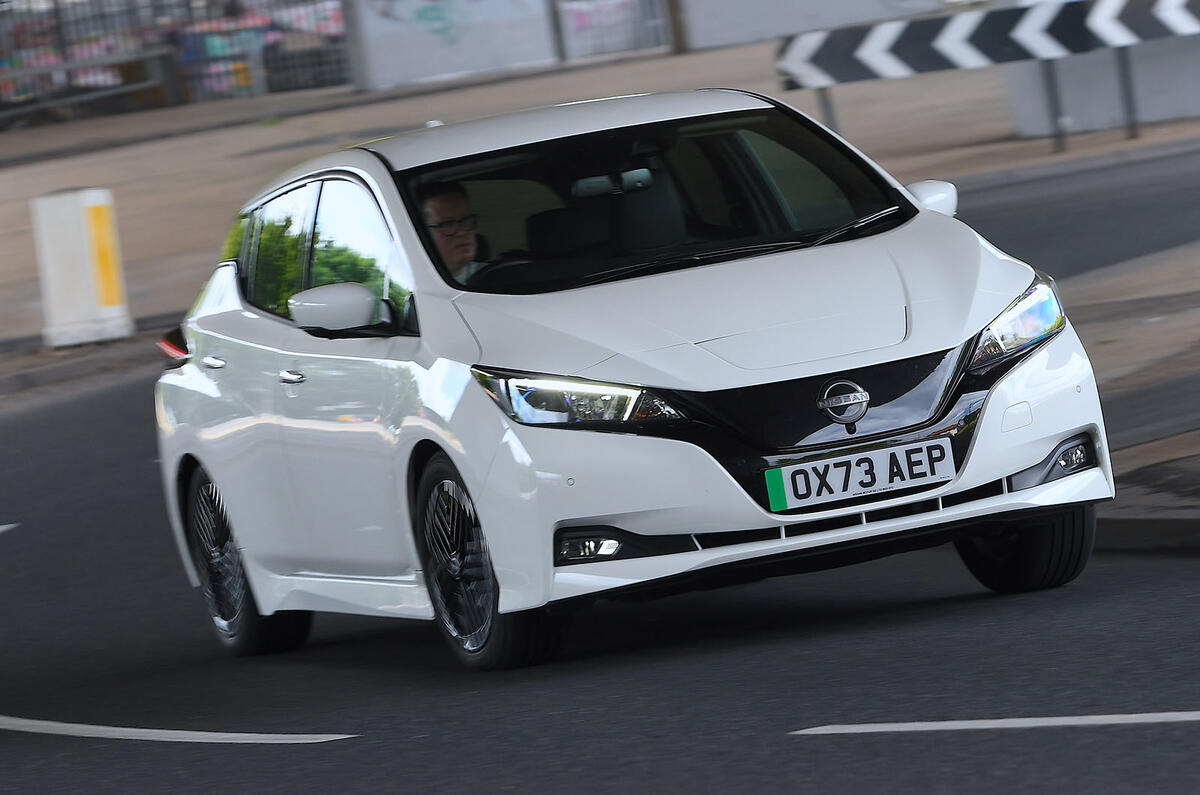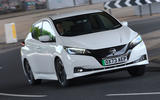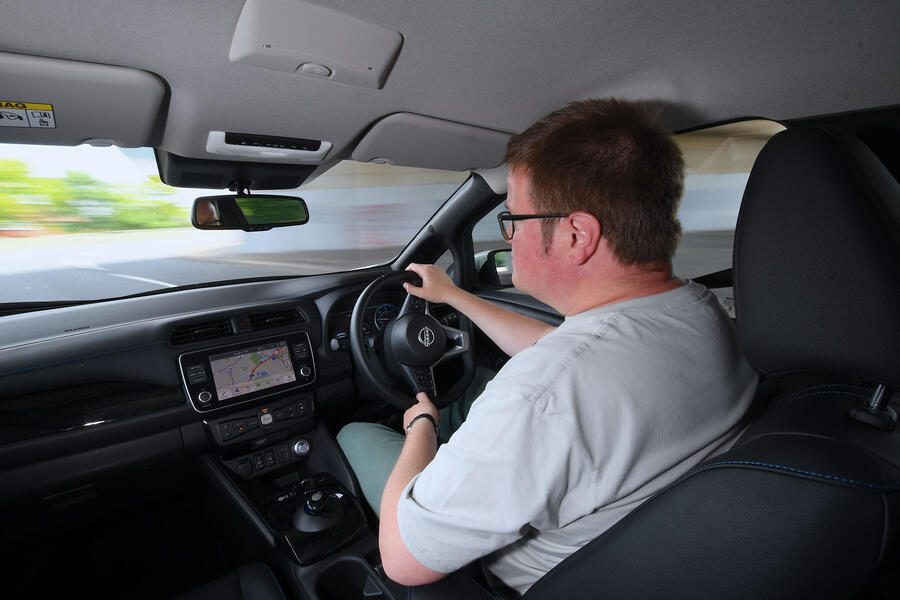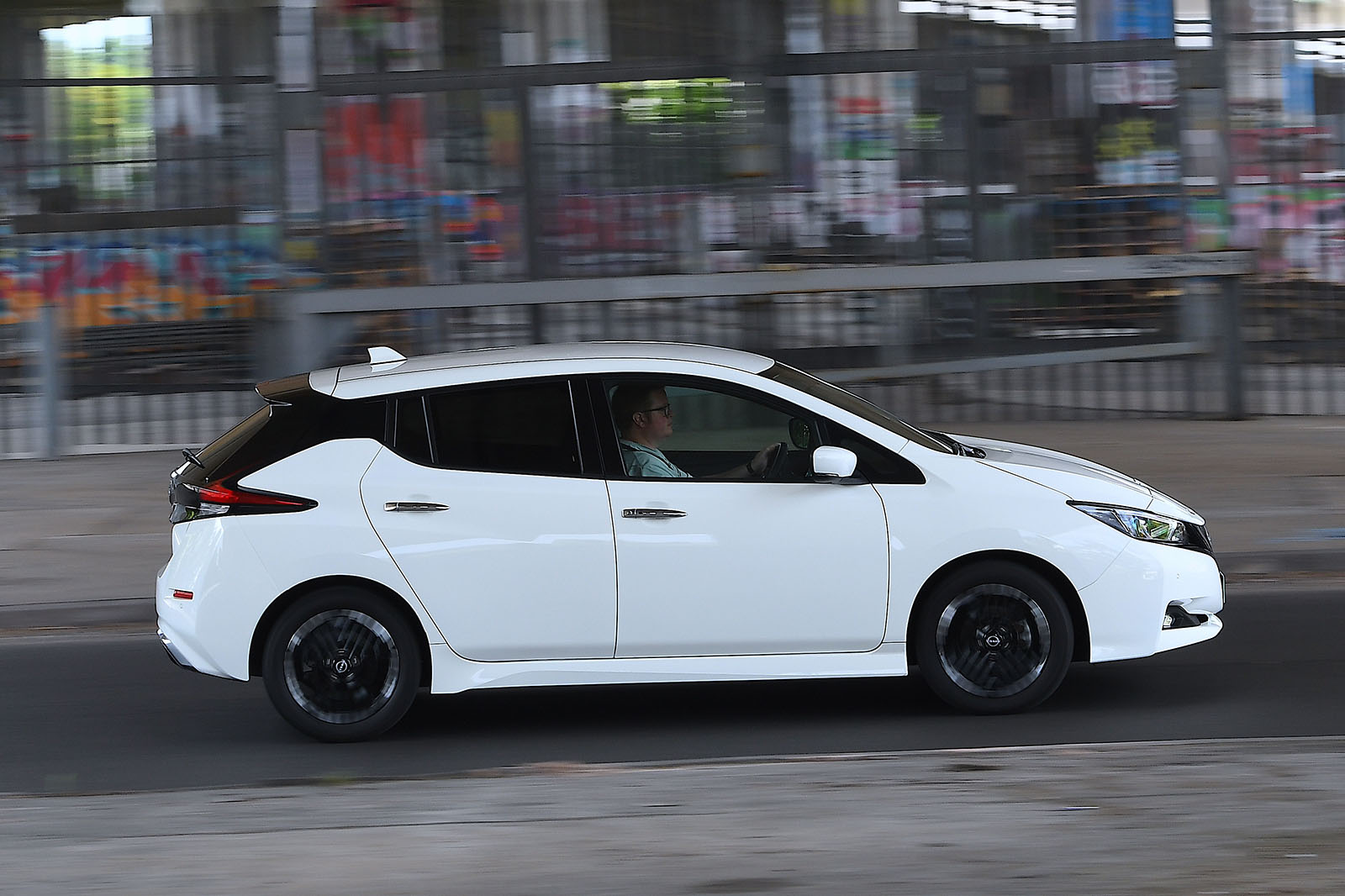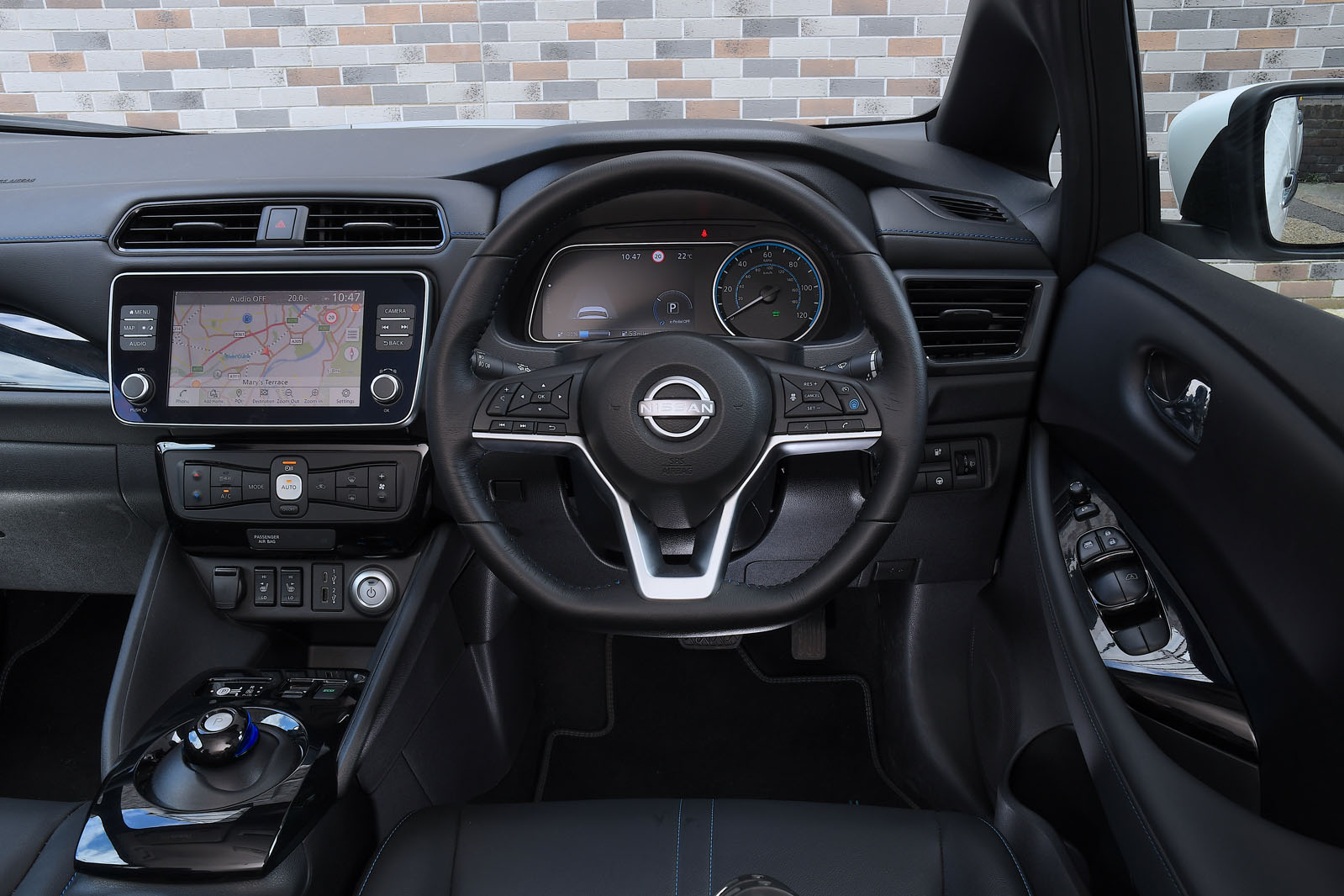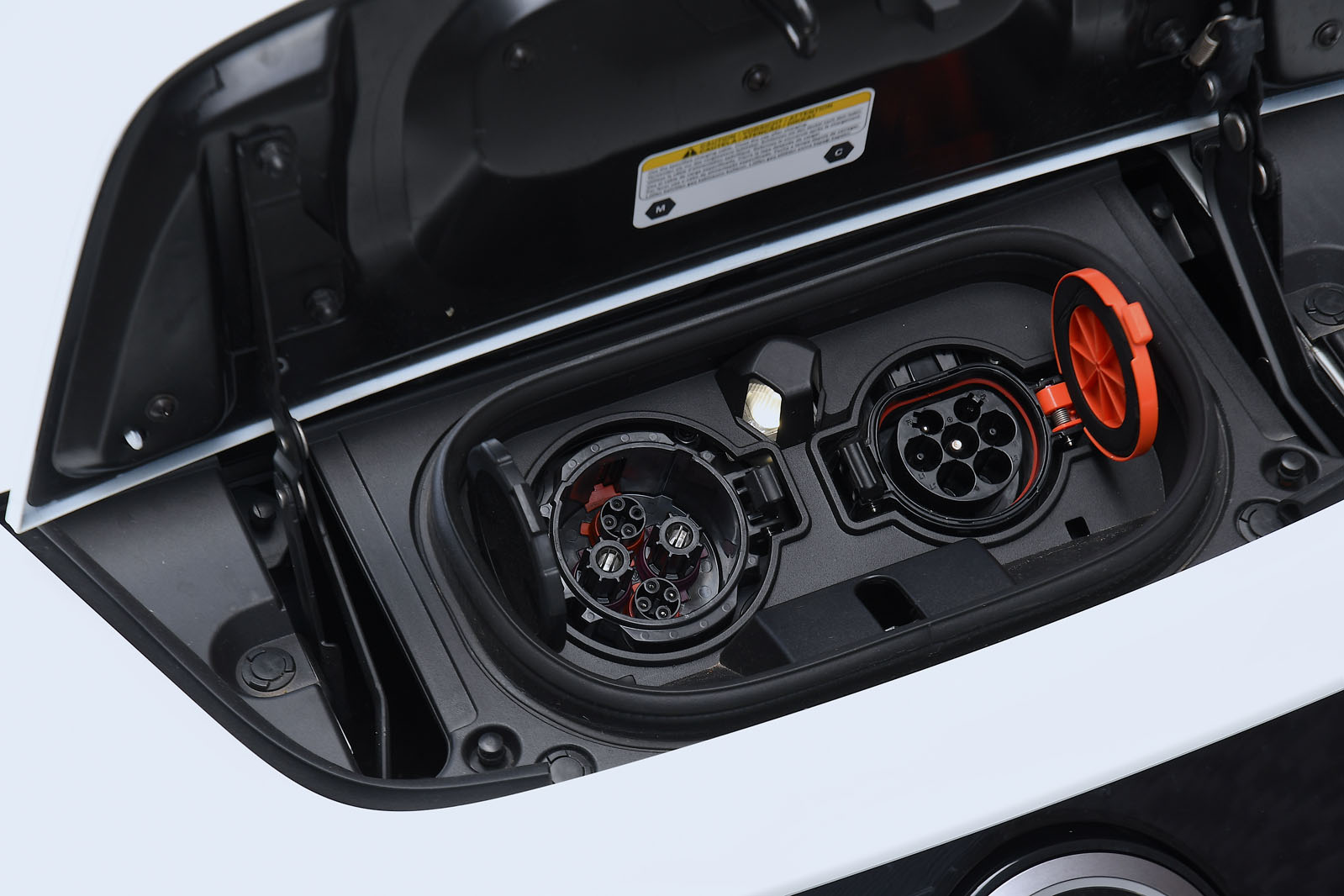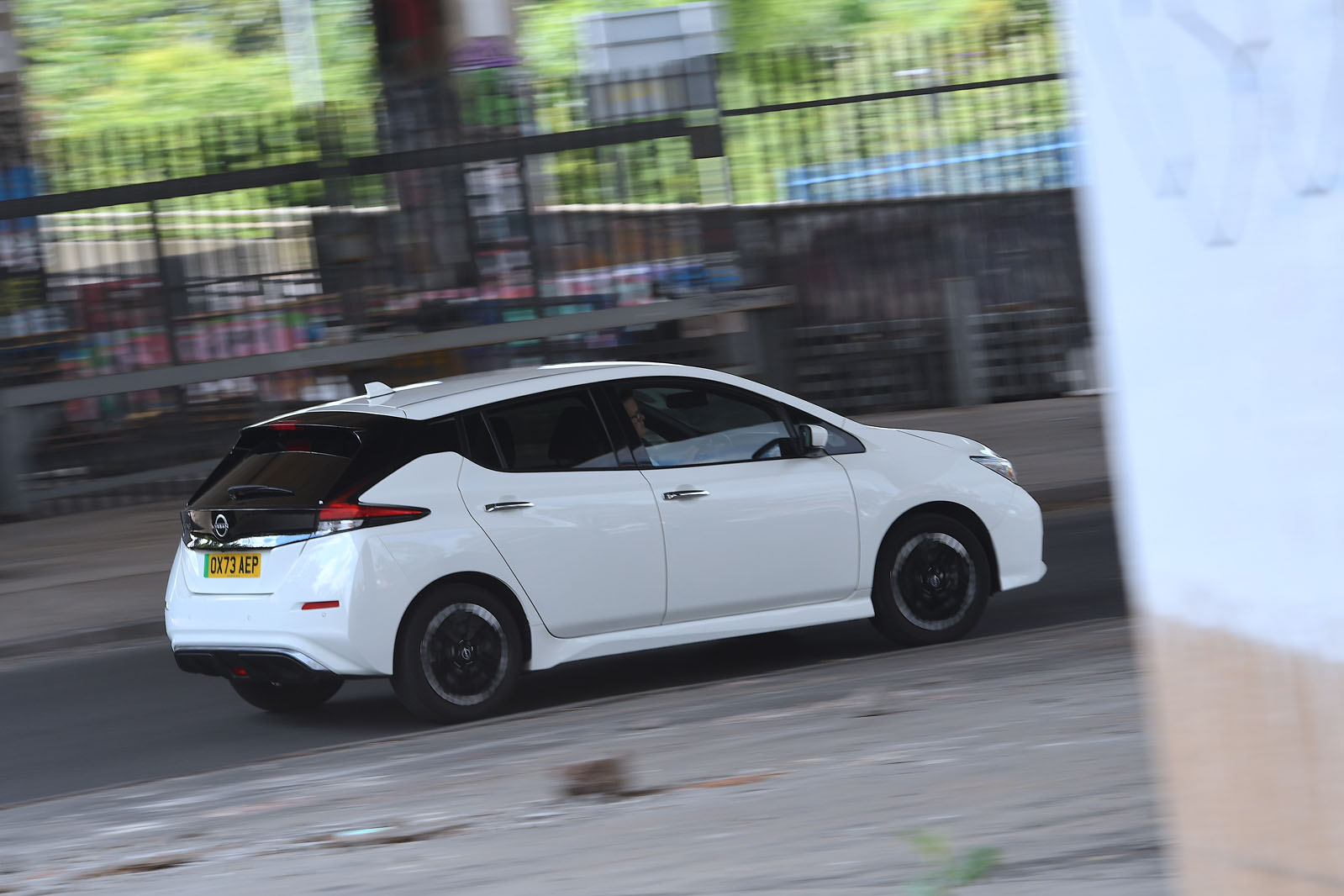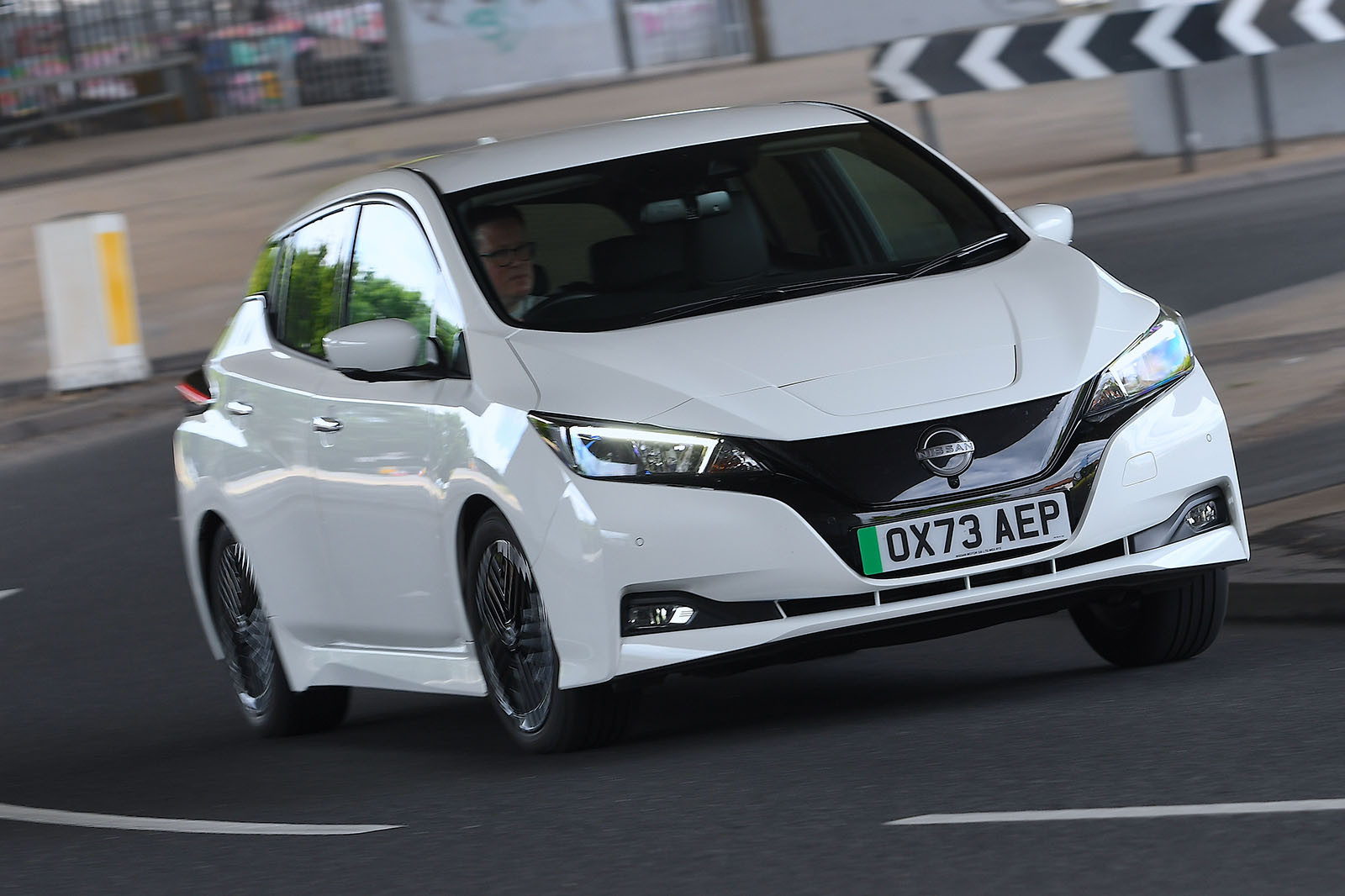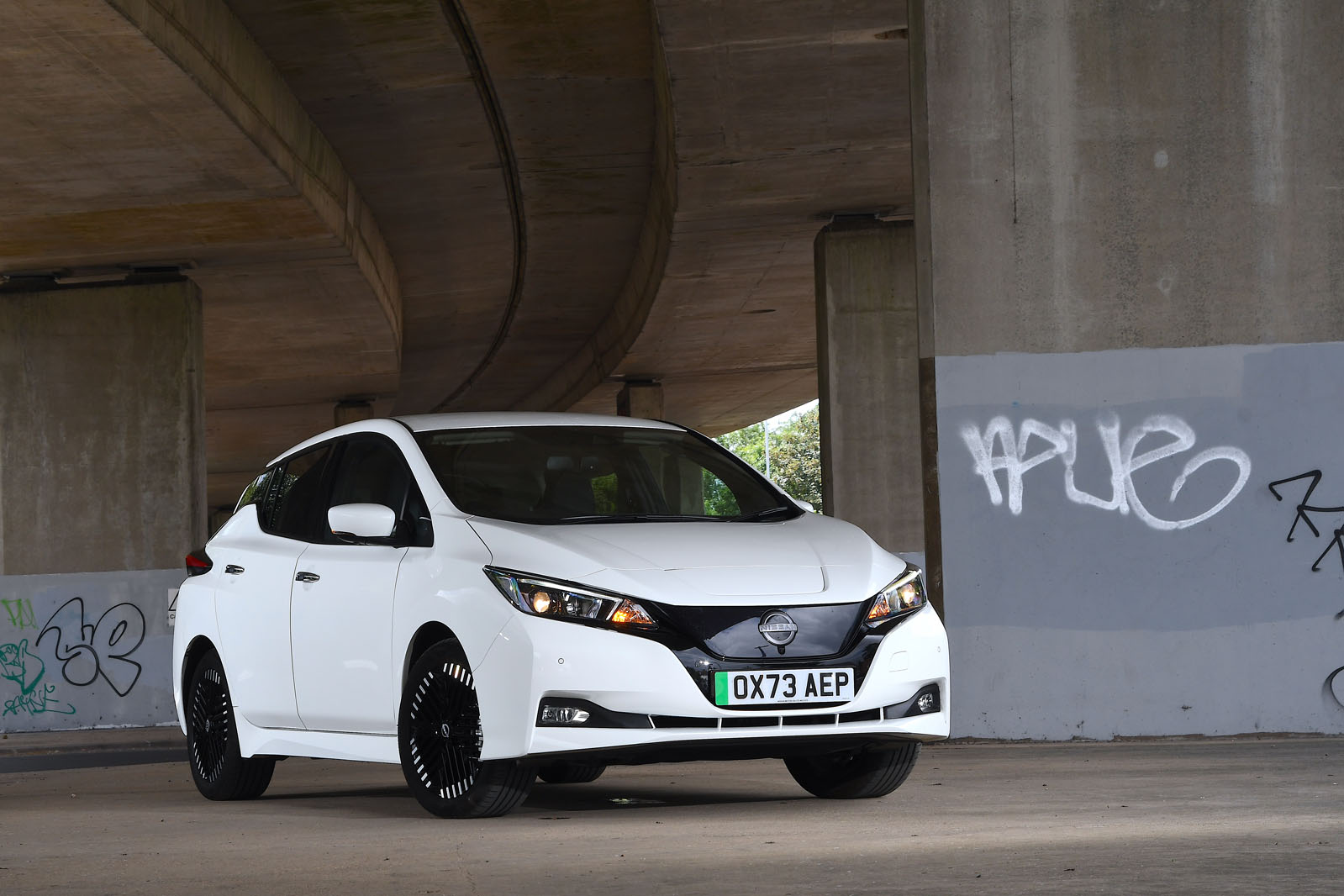The second generation of the pioneering Nissan Leaf electric hatchback is now fading slowly towards retirement. It inherited quite a legacy from its mould-setting predecessor, which became the first truly globally sold, mass-produced electric vehicle of the modern era when it entered production in 2010.
It wasn’t until 2020 that even the mighty Tesla could eclipse the Leaf’s tally of commercial success, when the Tesla Model 3 saloon finally overtook it for cumulative sales of any single model. To date, more than 650,000 Leafs have been sold the world over since 2010 – one in the eye for the Renault Zoe which, while more popular in Europe, itself never made it through the 500,000 mark.
Nissan replaced the jelly-mould-like original Leaf with this sharper-looking second one in 2017, and the improvements it made on its forebear (battery range went up by 50%, motor power by 40%, and torque by 25%) looked sizable. It went further still and launched an e+ version of the car in 2019, which pushed range up as far as 239 miles.
Such is the pace at which mass-market EVs have advanced since then, however, that the Leaf now offers notably less performance, range and rapid charging speed than key rivals. So it has been forced to compete for business at the budget end of the class, the larger-batteried version having been discontinued in 2023.


